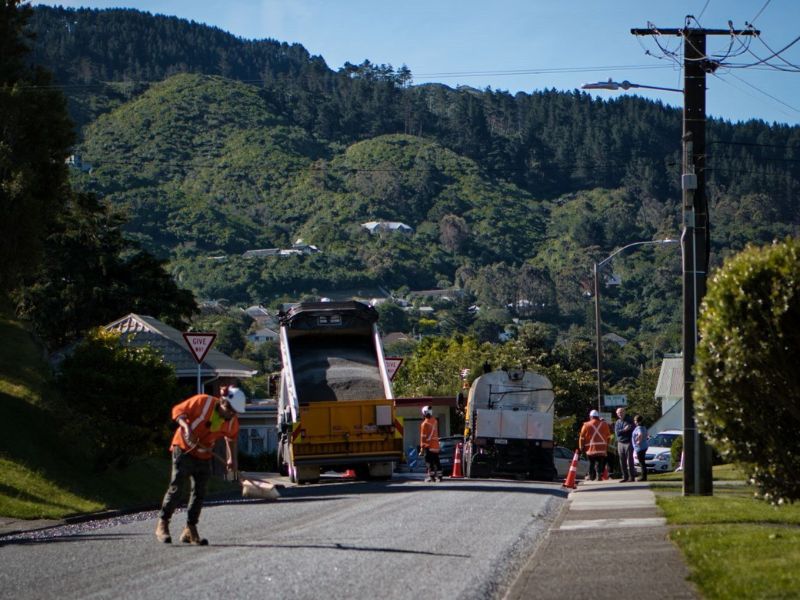Wellington paves way for climate-friendly bitumen - Inside ...
Wellington City Council is taking a new approach to roading materials that have less of a “bad rep” with residents and significantly reduced environmental impacts.

After years of trials and development, the Wellington council says it’s “leading the pack” in moving from traditional kerosene-based bitumen (asphalt) to an emulsified (water-based) version, says Council roading engineer, Renier Ackerman.
“In the past we used ‘cutback’ bitumen in the chipseals. The main additive was kerosene which helped with the workability of the chipseal, and delayed curing times in the colder, unpredictable weather of Wellington,” said Mr Ackerman.
“Using kerosene meant the chipseal couldn’t get to full strength for years after it was applied, so small stones would continue to flick up and scatter, and the bitumen could sometimes get ‘sticky’ in hot weather.”
The Council says this and other issues gave the old chipseal a bad reputation with Wellingtonians, so the roading crew knew they had to take a different approach, making it better for both the community and environment.
They replaced kerosene and all other additives with water, which leaves behind only clean bitumen on the road once the water evaporates afterwards. This increased the strength and durability of the chipseals, Council says.
The crew also added polymer, a type of rubber that further increased the strength and durability of the chipseals, saved ratepayer money when used instead of expensive asphalt.
The environmental benefits are plentiful, halving Council’s chipsealing carbon emissions.
There are practical benefits for the chipseal crew too, as this new approach enhances their safety on the job, said Mr Ackerman.
“Cutback bitumen was volatile and needed heating past 160 degrees celsius to be used, so severe burns would result if people got into contact with it. Emulsions can be used at a much safer 80 degrees celsius.”
Two years on, the roading crew has switched over completely to this way of working.
“We don’t apply any cutbacks on our roading network anymore. Waka Kotahi has only recently followed suit, so we are well ahead of the pack on this,” he said.Find out more about bitumen emulsion on the Road Science website.






































![3 Best Methods for iOS Pokemon GO Spoofing [No PC]](/_largethumb/uploads/news/115/11539/8/11539847-3-best-methods-for-ios-pokemon-go-spoofing-no-pc.jpg.webp)
![3 Best Methods for iOS Pokemon GO Spoofing [No PC]](/_newsthumb/uploads/news/115/11539/8/11539847-3-best-methods-for-ios-pokemon-go-spoofing-no-pc.jpg.webp)





